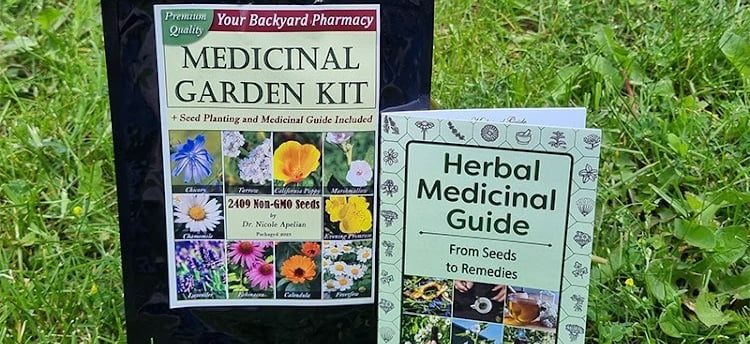Top 5 medicinal herbs to grow in your garden.
Let's review the top 5 herbs to grow and learn more about medicinal herbs, benefits and how to get the most out of these home grown herbs.
5/7/20243 min read
Growing herbs in your garden not only adds freshness to your kitchen but also brings a host of medicinal benefits. Here are the top five herbs that are not only easy to grow but also have notable health advantages:
1. Basil:
• Medicinal Benefits: Basil is known for its anti-inflammatory and antioxidant properties. It contains compounds like eugenol and rosmarinic acid, which can help reduce inflammation and fight oxidative stress.
• Key Components: Eugenol, rosmarinic acid, and other essential oils.
• How to Use: Fresh basil leaves can be used in cooking, particularly in Italian dishes like pesto. For medicinal uses, basil can be brewed into a tea to help soothe indigestion and headaches, or applied topically as an essential oil for skin irritations.
2. Mint:
• Medicinal Benefits: Mint is famous for its ability to soothe the digestive tract and relieve symptoms of irritable bowel syndrome (IBS). It also has antimicrobial and antiviral properties.
• Key Components: Menthol, which provides a cooling effect and helps relax the muscles of the digestive tract.
• How to Use: Mint leaves are great in teas, added to drinks, or used in sauces. A tea made from fresh or dried mint leaves can help relieve upset stomachs and promote digestion.
3. Lavender:
• Medicinal Benefits: Lavender is renowned for its calming and relaxing effects, making it a great aid for anxiety and insomnia. It also has antiseptic and anti-inflammatory properties.
• Key Components: Essential oil containing linalool and linalyl acetate.
• How to Use: Dried lavender flowers can be used to make tea or sachets that promote relaxation and sleep. Lavender oil can be used in aromatherapy, added to bathwater, or applied topically for stress relief and minor burns.
4. Rosemary:
• Medicinal Benefits: Rosemary has been shown to boost memory, improve mood, reduce inflammation, and increase circulation.
• Key Components: Rosmarinic acid and carnosic acid, which are powerful antioxidants and anti-inflammatories.
• How to Use: Rosemary can be used fresh or dried in cooking to enhance flavor, particularly in meats and breads. Rosemary oil can be used for hair health or massaged into the skin to help stimulate circulation.
5. Chamomile:
• Medicinal Benefits: Chamomile is best known for its use in treating insomnia and anxiety. It's also effective in treating digestive issues such as upset stomach, gas, and diarrhea.
• Key Components: Contains bisabolol, apigenin, and chamazulene; these compounds contribute to its anti-inflammatory, antispasmodic, and relaxant properties.
• How to Use: Chamomile flowers are most commonly brewed into a soothing tea. It can also be used as a compress or added to bathwater to soothe skin irritations.
Growing and Processing Tips:
• Soil and Sunlight: Most herbs require well-drained soil and plenty of sunlight (at least 6 hours per day). Regular pruning will help increase the yield and potency of the active components.
• Harvesting: Harvest herbs in the morning after the dew has dried but before the sun becomes too hot. This helps ensure that the essential oils are at their peak.
• Drying and Storage: To dry herbs, hang bunches upside-down in a warm, dry, and dark place with good air circulation. Once fully dried, store the herbs in airtight containers away from light.
Incorporating these herbs into your garden not only brings vibrancy and diversity but also provides easy access to natural remedies that can support overall health and wellness. Whether used in teas, cooking, or as topical preparations, the medicinal benefits of these herbs make them invaluable additions to any garden.




